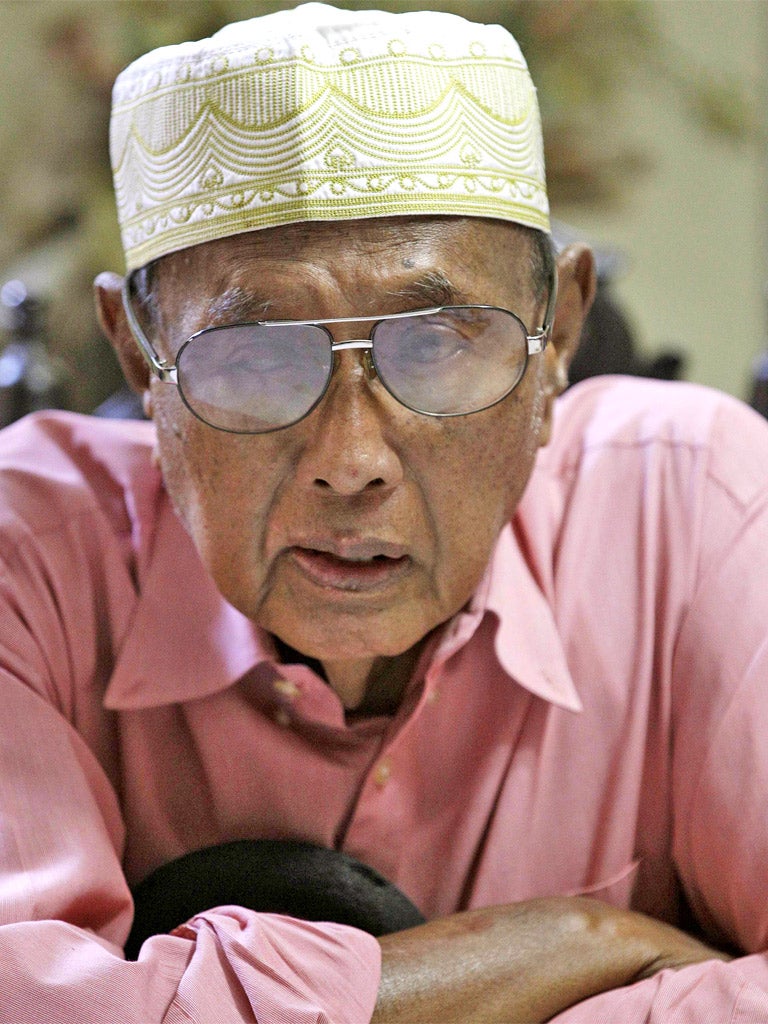
Sultan Jamalul Kiram III, who died of multiple organ failure on 20 October at the age of 75, was a Philippine sultan whose armed followers invaded a vast Malaysian region, sparking a security crisis that left dozens of people dead earlier this year. His wife, Fatima Celia, said that before he died, he ordered his family and followers to keep alive the historic territorial claims to Sabah state in neighbouring Malaysia.
Although largely forgotten and dismissed as a vestige from a bygone era, Kiram’s Muslim sultanate, based in the southern Philippine province of Sulu, stirred up a security crisis in Malaysia when his younger brother and about 200 followers, dozens of them armed, marched into Sabah’s coastal village of Lahad Datu in February. Malaysia responded by sending in ground troops and launching air strikes. Dozens of people were killed in weeks of sporadic fighting before the standoff eased.
Since the 1960s, Malaysia has governed the resource-rich frontier region of timberlands and palm oil plantations in northern Borneo as its second largest federal state.
The Kiram sultanate, which emerged in the 1400s, was noted for its wide influence at the time and its feared Tausug warriors.
Chinese and European leaders once sent vassals to pay homage to their powerful forebears. The Sulu sultanate preceded both the Philippine republic and Malaysia by centuries. Now, overtaken by history, the Kirams now carry royal titles, but little else.
“I’m the poorest sultan in the world,” an ailing Kiram said in an interview in March at his run-down residence in a Muslim village in Manila, the Philippine capital. The Kirams claim Sabah has belonged to their sultanate for centuries and was only leased to Malaysia, which they say pays them a paltry annual rent.
Malaysian officials contend that the payments are part of an arrangement under which the sultanate has ceded the 28,000 square miles of Sabah territory to their country.
Philippine presidents have usually relegated the volatile feud to the back-burner, despite efforts by the Kirams to put it on the national agenda. Kiram’s sultanate still has hundreds of followers in Sulu and nearby southern provinces, which are among the Philippines’ poorest and are troubled by Muslim rebels, al-Qa’ida-linked extremists and outlaws.
Kiram, who had eight children with two wives, will probably be replaced by a younger brother, Esmail Kiram II, in a succession often marred in the past by clan infighting and claims by fake descendants of the once-powerful Muslim royalty.
AP
Subscribe to Independent Premium to bookmark this article
Want to bookmark your favourite articles and stories to read or reference later? Start your Independent Premium subscription today.

Join our commenting forum
Join thought-provoking conversations, follow other Independent readers and see their replies